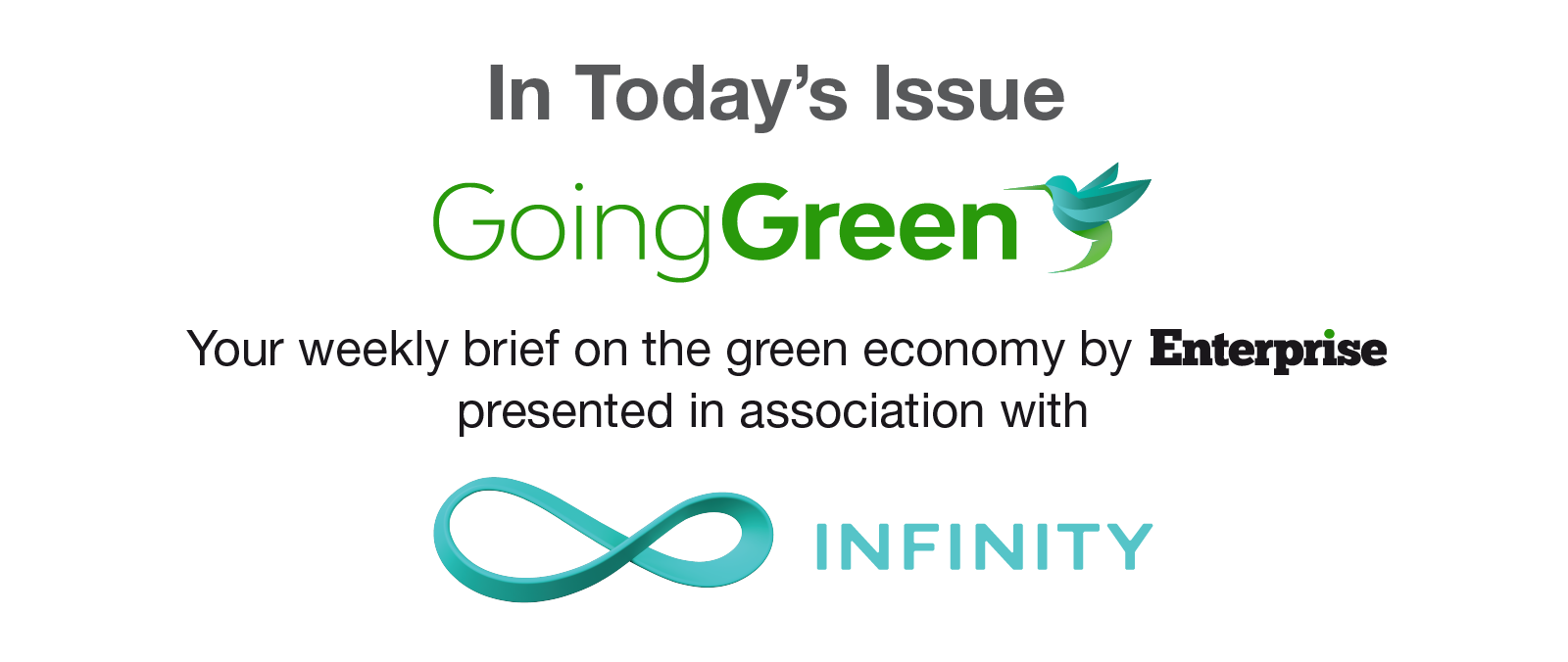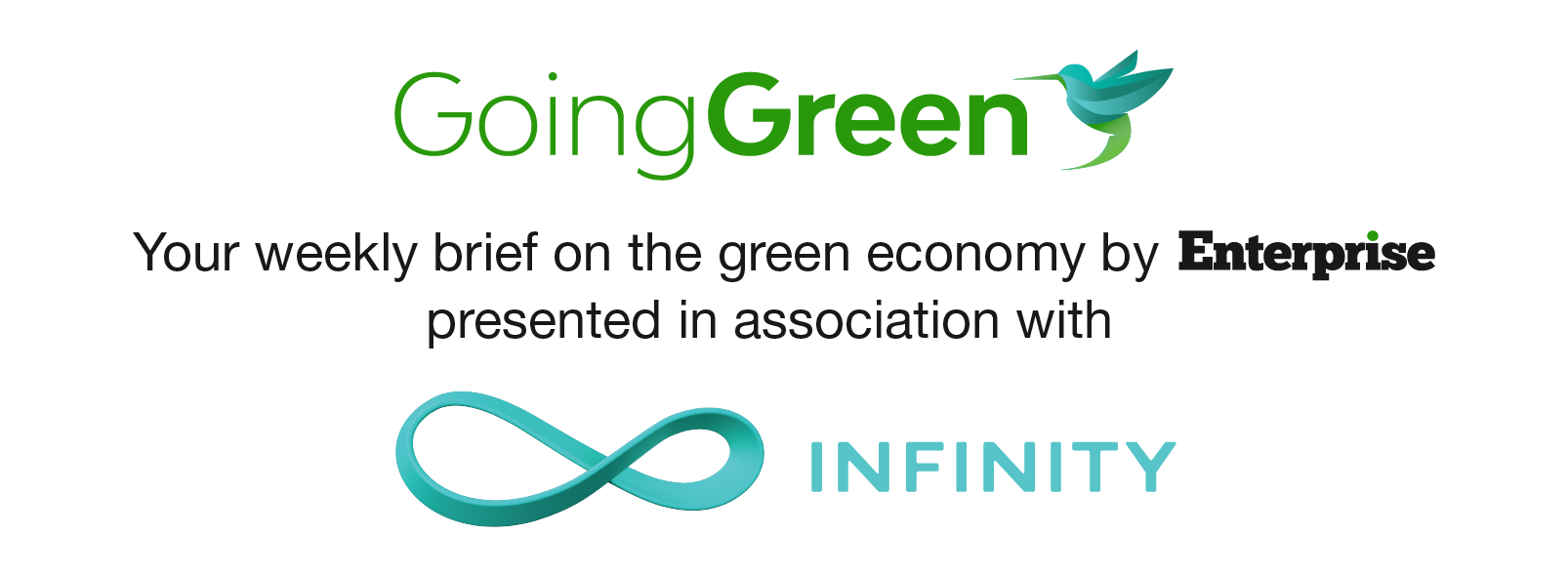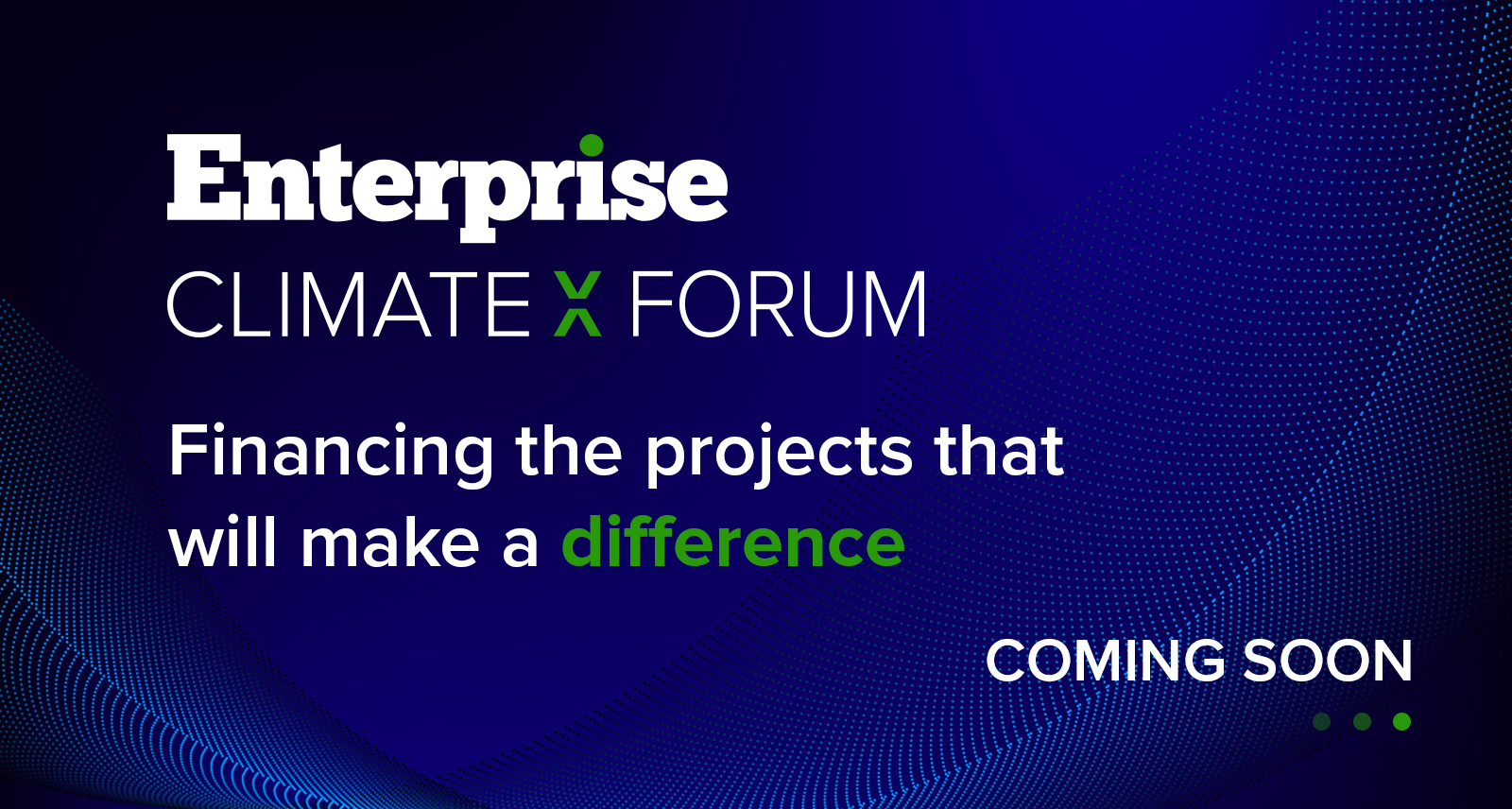- New regs for real estate developers to protect consumers and reduce risk. (Real Estate)
- Chevron could boost our natgas export hub ambitions. (Energy)
- EFG Hermes’ valU has new minority Saudi owners in the Alhokair family. (M&A Watch)
- Cabinet ministers are pushing ahead with privatization plans. (Privatization Watch)
- Gulf sovereign funds partner with SFE, other African funds to up investments. (Investment Watch)
- Infinity will be implementing gov’t tariffs on EV charging from next week. (Automotive)
- We got a big day of news to look forward to: Big budget vote and automotive tariffs in the House + more from MbS’ visit. (What’s Happening Today)
- Enterprise sits down with Marina Wes, country director for Egypt, Yemen and Djibouti at the World Bank. (Going Green)
- EM corporate debt bucks the global downturn + Euro finance chief denies risk of another eurozone debt crisis. (Planet Finance)

Tuesday, 21 June 2022
AM — Gov’t brings in new real estate regulations to back consumers and cut market risk
TL;DR
WHAT WE’RE TRACKING TODAY
It’s hump day, ladies and gentlemen, and what a hump it is. Our privatization drive continues to guide the conversation, while regulation in key sectors appears to be the dominant theme this week as the House of Representatives approaches its summer recess.
Elsewhere: Chevron is stepping up to help us realize our natgas export ambitions.
And there’s fresh buy-in from Saudi investors to our fintech market as the Alhokair family purchases a stake in EFG Hermes’ BNPL platform valU – and promising signs of more foreign investment to come as Gulf sovereign wealth funds eye our market once again.
THE BIG STORY here at home is the biggest regulatory shake up the real estate sector has seen in years, as the government brings new and ongoing developments under stricter oversight on project timelines and funding in a move to back consumers and cut market risk.
THE BIG STORY ABROAD: The eyes of much of the international press today are turned on the political drama unfolding in Israel, where voters will head to the polls once more after the fragile coalition government led by Prime Minister Naftali Bennett collapsed over internal disputes after just a year in power. Bennett announced his plan to dissolve the government in a televised statement alongside Foreign Minister Yair Lapid, who will serve as interim PM until new elections are held. “We are standing before you today in a moment that is not easy, but with the understanding we made the right decision for Israel,” Bennett said. Expect the elections sometime in October.
Will Bibi stage a comeback? The fifth elections in less than four years present a chance for the return of Israel’s longest-serving PM and opposition leader Benjamin Netanyahu to return to power. Reuters, the Associated Press, Bloomberg, and the BBC all have more.
WHAT’S HAPPENING TODAY-
Budget season reaches its climax today when MPs take a final vote on the FY 2022-2023 budget and socio-economic development plan. For more budget reax: Senate | House.
Maait responds to MPs criticisms: Finance Minister Mohamed Maait told MPs that their call for more austerity to tackle the public debt in next fiscal year’s budget “sounds great,” but could negatively impact healthcare, education, and salaries, “which are in desperate need of greater spending all the time,” according to Ahram Online. He said the government did have a strategy to bring down debt but reminded MPs that the war in Ukraine and the covid pandemic had taken a toll on the public purse amounting to some USD 7.5 bn.
Also at the House: It’s automotive imports day. The House Economics Committee is set to discuss issues with automotive imports, after three MPs submitted separate briefing requests. Rep. Ahmed Bahaa Shalaby and Rep. Ahmed El Hetta filed briefing requests on the Trade and Industry Ministry’s decision from May of last year barring importers from bringing in used electric vehicles or EVs that are not the manufacturer’s latest model. The decision “goes against the state’s push towards a green economy and its policy of encouraging environmentally-friendly vehicles,” Shalaby said. The decision has reportedly also pushed up the prices of imported EVs being sold in the local market, the MP said.
Separately, Rep. Amal Rizk filed a briefing request on the ministry’s recently-updated import regulations (pdf) for passenger cars, which impose new safety and maintenance requirements. The regulations have pushed local dealerships to raise car prices for consumers, Rizk claimed. Although importers did ask for more time to comply with the regulations in April, the bigger culprit behind higher car prices is the huge gap between supply and demand in the market. Thousands of cars have been stuck in port and foreign manufacturers essentially suspended sales to Egypt after new rules handed down in March required importers to use letters of credit to purchase goods, instead of documentary collection.
ANOTHER BIG DAY IN DIPLOMACY-
Expect to hear more on MbS’ visit to Egypt today. Saudi Crown Prince Mohammed bin Salman was greeted by President Abdel Fattah El Sisi at Cairo Airport when he touched down yesterday for a two-day visit, a statement by Ittihadiya read. The pair will hold talks today. The Saudi prince’s visit to Cairo is part of a three-day tour that will take him to Jordan and Turkey later this week. The tour is MbS’ first outside the Gulf in over three years, Reuters notes.
Saudi Arabia lifts Turkey travel ban ahead of MbS visit: Ahead of the Crown Prince’s landing in Ankara, Riyadh has ended its travel ban on Turkey (and Ethiopia, Vietnam, and India), according to the Saudi Press Agency, allowing citizens to visit the country for the first time since the kingdom introduced covid travel restrictions in March 2020.
And we should sign the long-awaited Lebanon gas pact today: Lebanon’s caretaker Energy Minister Walid Fayad told the country’s Al-Jomhouria newspaper, that Lebanon, Egypt, and Syria will today sign the agreement to import gas from Egypt via the newly renovated Arab Gas pipeline. The plan has been mired in diplomatic wrangling for months, and will likely still need US sign-off and a financing pledge from the World Bank to get the final go-ahead.
FROM PLANET CONFERENCE-
The two-day Aswan Forum for Sustainable Peace and Development starts today.
It’s the second and final day of CIB and the Egyptian Center for Economic Studies’ (ECES) joint conference, Towards COP27 and Beyond, tomorrow at 9am at Semiramis Intercontinental. You can register to attend the conference at the venue or online via Zoom, or catch the event’s live stream on ECES’ Facebook page.
|
WAR WATCH- There’s potentially a new flashpoint developing in the increasingly hostile relationship between Europe and Russia after Lithuania moved to block the transport of sanctioned goods to the Russian territory Kaliningrad. The exclave — sandwiched between Poland and Lithuania on the Baltic coast — is reliant on rail that transits Lithuania to obtain goods and raw materials, and now faces being unable to obtain 50% of its imports because of the ban. Moscow called the move “unprecedented,” and vowed to “take actions to protect its national interests” if the restrictions are not lifted. Reuters has more.
Missed this week’s Inside Industry? In our weekly vertical exploring all things industry and manufacturing, we looked at the new customs breaks designed to speed up the localization of industry and lessen our dependence on international supply chains.
CIRCLE YOUR CALENDAR-
It’s interest rate week: The Central Bank of Egypt will meet on Thursday to discuss interest rates. A majority of analysts and economists we surveyed expect policymakers to leave rates unchanged, according to our customary poll.
The Big 5 Construct Egypt (pdf) construction industry exhibition runs from 25-27 June at the Egypt International Exhibition Center (EIEC) in Cairo.
Amcham AGM later this month: Our friends over at Amcham will hold their annual general meeting on Monday 27 June at the St. Regis Cairo Hotel. Finance Minister Mohamed Maait will address the gathering.
A call for women entrepreneurs: Visa, in collaboration with CIB and USAID, launched the She’s Next initiative (pdf) in Egypt, giving women-led businesses the chance to snag one of five USD 10k grants, as well as one year of coaching from IFundWomen with networking and mentoring opportunities. Applications close on 20 July.
Check out our full calendar on the web for a comprehensive listing of upcoming news events, national holidays and news triggers.

*** It’s Going Green day — your weekly briefing of all things green in Egypt: Enterprise’s green economy vertical focuses each Tuesday on the business of renewable energy and sustainable practices in Egypt, everything from solar and wind energy through to water, waste management, sustainable building practices and how you can make your business greener, whatever the sector.
In today’s issue: As the clock ticks down to COP27, we sat down with Marina Wes, the World Bank’s country director for Egypt, Yemen and Djibouti, to talk about the energy transition, climate finance, and the importance of bringing the private sector into the fold.
***
WE’RE LOOKING FOR SMART, TALENTED PEOPLE to help us build some very cool new things. Today, we run two daily publications, five weekly industry verticals, and a monthly newsletter designed to make our readers feel just a bit smarter.
We have tons more in the pipeline — come help us build new publications. We offer the chance to work in a fast-paced newsroom on a broad range of topics and in a variety of formats. Our goal is simple: To create value for our growing community of >199k readers by telling stories that matter.
We’re looking for editors who want to run publications and teams, editors to help reporters craft stories and talented reporters. Egyptian and foreign nationals alike are welcome to apply. So are job-switchers: If you’re an equities analyst tired of the rat race, we’re a great place to come work.
Apply directly to jobs@enterprisemea.com and mention Patrick in your subject line.
Or hit this link for more information. It’s worth it — trust us.
***
Experience the Bay Life Rentals: A new era of holiday magic provides a first-class selection of luxurious vacation rentals with a holistic luxury concierge service, expertly combining personalized hospitality with a refined local touch to transform your vacation into a one-of-a-kind experience. Book now: https://holidays.somabay.com/stayr/ or call +2016390.
REAL ESTATE
A regulatory overhaul cometh to real estate developers

The Madbouly cabinet imposed a slate of new regulations for real estate players yesterday designed to protect consumers and reduce market risk, it said in a statement yesterday. The new regulations set how and when developers can start marketing units and how much of their own capital they must put up for a project. Furthermore, they require developers to submit semi-annual reports on their projects and activities, create separate bank accounts for each of their projects, and be subject to financial auditing.
Developers are now required to divide each project into phases, with each phase subject to approvals from the Housing Ministry before it can move forward with sales from the next phase.
Liquidity requirements: Developers must prove that they are able to fund a portion of each phase of their projects by depositing in the account an amount determined by the size of the project. Developers will need to deposit:
- 3% for projects larger than 1k feddans;
- 5% for projects spanning 500-1k feddans;
- 10% for projects spanning 100-500 feddans;
- 15% for projects spanning 50-100 feddans;
- At least 20% of the value of projects spanning less than 50 feddans.
But there are exemptions: Developers that have already built the equivalent of at least 10% of the largest tier of projects (over 1k feddans) will be exempt from the deposit requirement. They would be exempt from the requirement if they build 15% of a 500-1k feddans development, 20% of a 100-500 feddans plot; 25% of 50-100 feddans; and 30% of projects less than 50 feddans. This seems to indicate that the government is scrapping a proposed rule that would have prevented developers from selling units until at least 30% of the project had been completed.
Money will need to be kept aside in case of refunds: Companies will also need to keep aside money equal to 5% of the value of units sold to cover potential refunds. In the case of delays that exceed two years, buyers can choose to receive a 100% refund on the unit within three months of submitting a formal request.
Separate account for debts and maintenance: Any developer that has obtained a loan is required to open a debit account in a bank for the project, which will be used to make loan repayments. Developers must set up a separate account for maintenance fees collected from buyers. Those fees cannot be used as part of the funds for project phases.
New reporting requirements: Developers will need to submit semi-annual audited financial reports to the ministry. The reports will have to be submitted within 45 days of the end of the first half of the fiscal year on 31 December and the end of the fiscal year on 30 June.
Developers must commit to the timeframe approved by the ministry, and submit regular technical reports with updates on construction progress. Developers who miss their deadline will have six additional months to complete the project, before which they will be subject to the legal penalties identified in their project contracts with the ministry.
When will they come into effect? We have not read the decree in yesterday’s Official Gazette, but Tarek Shoukry, head of the real estate division of the Federation of Egyptian Chambers of Commerce and Arabia Holding chairman, told Enterprise that the regulations came into effect yesterday.
Crucially, this is not a retroactive bill, which means it will be applied only to new and ongoing projects.
There will be a year-long grace period for developers to bring their practices in line with the new regs, Shoukry tells us.
We already knew this was coming: The cabinet greenlit the regulations back in December, though at the time they lacked detail.
ENERGY
Egypt signs agreement with Chevron to help us realize our gas hub ambitions

Will Chevron help give our gas hub ambitions a boost? EGAS signed an MoU with Chevron to explore ways to transport, import, liquefy, and re-export gas from the Eastern Mediterranean, according to a cabinet statement. The agreement will see the two companies work on developing infrastructure to transport gas from offshore fields to Egypt, where it can be liquefied and re-exported.
This comes a few days after we signed a landmark agreement to export Israeli gas to Europe: The agreement will see Israel send more gas to Egypt’s LNG facilities for re-export to Europe, and comes as the continent looks to phase out its reliance on Russian fossil fuels. The agreement will also see the three sides work together on the “efficient utilization” of infrastructure to increase gas shipments to the EU, as well as reduce methane emissions and explore carbon capture projects.
What they said: “Egypt has strong LNG infrastructure that can be attributed to the wealth of gas fields in the country and our strong partnerships with the EastMed region,” the statement quotes Oil Minister Tarek El Molla as saying.
What partnerships? Egypt is a founding member of the East Mediterranean Gas Forum, which brings together countries in the region to coordinate energy policy and develop the region’s gas reserves. The Oil Ministry has placed particular emphasis on building stronger ties with Israel, which currently supplies us with gas from its Tamar and Leviathan fields, and Cyprus and Greece.
We’re in need of new infrastructure: Egypt is looking to build new LNG terminals and pipelines to increase capacity and export volumes, including the link to Cyprus’ Aphrodite gas field, which the countries are expected to start constructing later this year, and a potential direct pipeline to Greece. El Molla said recently that without additional investment it could take two or three years before we are able to increase exports to Europe.
Chevron is also looking to expand its exploration operations in Egypt, the statement read. The US company has in recent years sought to step up its presence in the EastMed hydrocarbon sector, purchasing a 40% stake in Israel’s Leviathan field and 25% of Tamar in recent years.
The oil giant is looking to start drilling its first exploration well in the Mediterranean in September, the statement read. The Oil Ministry awarded Chevron and four other companies concessions in the Mediterranean, Red Sea and the Western Desert in 2020.
President Abdel Fattah El Sisi met with Chevron CEO Mike Wirth, where he expressed the state’s full support for Chevron’s activities in Egypt, Al Hayah Al Youm reports (watch, runtime: 3:09).
The story also got attention from Reuters.
PRIVATIZATION WATCH
Privatization program unpacked

Madbouly gets his ministers together for a status update on privatization plans — and they’ve been busy bees: Prime Minister Mostafa Madbouly yesterday brought key cabinet ministers around a table to follow up on President Abdel Fattah El Sisi’s new economic agenda, including plans to sell stakes in state-owned firms to local and international investors. Madbouly asked ministers for updates on the specific tasks he had handed out to them at a similar meeting two weeks ago, according to a cabinet statement.
Education + healthcare investments are leading the pack: The government has identified non-profit and tech universities, hospitals, and healthcare projects to be offered to private sector partners, said Higher Education Minister and Acting Health Minister Khaled Abdel Ghaffar. The ministry has held meetings with private sector representatives in the healthcare sector to gauge their thoughts, and reached out to the Sovereign Fund of Egypt (SFE) to discuss the possibility of offering the universities to the private sector, he added. It also asked the SFE to draft a private-sector partnership contract for establishing hospitals or universities, and has asked the Housing Ministry to identify available land plots nationwide on which to build them.
Next steps: Madbouly asked Abdel Ghaffar to provide a detailed map on potential investments in the higher education and health sectors so that the SFE and the General Authority for Investment and Freezones (GAFI) can promote them.
Updated stake sales plan: In a separate meeting yesterday, Madbouly reviewed the updated plan he had asked the Finance Ministry to prepare for the state privatization program, according to a statement. FinMin had been asked to prepare a timeline for stake sales in state-owned firms, including how much of each company could be on offer.
No word on timing yet as gov’t proceeds with caution: Economic conditions will dictate the timing of any sales (as is par for the course when it comes to stake offerings), Madbouly said at the meeting. The government is assessing the EGX’s performance to gauge the best timing, he said, especially in light of the global economic turmoil triggered by war in Ukraine.
Remember: IPOs in particular are suffering their worst year in nearly two decades as monetary tightening, the Ukraine conflict, and a looming recession in developed markets dampens investor sentiment. The Madbouly government has said that it wants to sell stakes in as many as 10 state-owned and two military-owned companies this year. It signaled that it is open to both stake sales and IPOs, depending on market conditions and individual investor interest. The new state-owned hotel company and Egypt Aluminum (EgyptAlum) have both been earmarked in recent weeks for sale to strategic investors.
Other cabinet members have also been hard at work on their to-do lists. Here are the highlights of what’s been achieved so far:
- The Justice Ministry has finalized and presented to cabinet a new intellectual property strategy that will involve establishing a national authority for intellectual property, Justice Minister Omar Marwan said. It has also sent to the House a bill drafted with the Finance Ministry to promote investments on the EGX.
- The Finance Ministry has established a committee to discuss incentives to lure investors, Finance Minister Mohamed Maait said.
INVESTMENT WATCH
Gulf sovereign funds are showing their African neighbors some love
Paving the way for more Gulf sovereign investment, here and across Africa? Three Gulf sovereign funds — Abu Dhabi’s ADQ and the Abu Dhabi Investment Authority, and the Kuwait Investment Authority — have inked an agreement to support investment in Africa with nine of the continent's sovereign funds, including the Sovereign Fund of Egypt (SFE), Reuters reported.
Who else took part? Sovereign funds in Morocco, Nigeria, Ghana, Gabon, Rwanda, Angola, Senegal, and Djibouti are also part of the agreement, which was signed at the first ever Africa Sovereign Investors Forum in Rabat.
African sovereign funds pull together: The forum “aims to bring together the 10 largest sovereign wealth funds in Africa to help address the challenges facing investment in the continent to finally unlock its massive potential,” SFE CEO Ayman Soliman told Enterprise. “As an example, we agreed to focus on logistics as a means of boosting cross African trade and flow of goods to help build robust supply chains for the continent,” he said. The forum also hopes to up coordination between African sovereign funds to mobilize capital and equity, and boost green projects, fund CEOs told Reuters.
The details of the Gulf agreement are TBD: We don’t yet know the ins and outs of the Emirati and Kuwaiti cooperation with the African funds — or the value of any attached investments.
Gulf funds have been giving us a lot of love lately: Earlier this year, ADQ invested USD 1.8 bn in five EGX-listed companies as part of plans to help our economy face down headwinds stirred up in part by war in Ukraine. And we wouldn't be surprised to see more sovereign Gulf capital flow our way soon, as the government pushes ahead with plans to raise USD 40 bn over the next four years by selling stakes in state-owned assets to local and international investors.

M&A WATCH
KSA’s Alhokair family agrees to acquire 4.99% of valU

valU welcomes new minority Saudi owners: The Alhokair family looks set to acquire a 4.99% stake in EFG Hermes’ buy-now-pay-later platform valU, according to a statement (pdf) out yesterday. Brothers Fawaz Abdulaziz Alhokair, Salman Abdulaziz Alhokair, and Abdul Majeed Abdulaziz Alhokair have agreed to acquire the stake through a USD 12.4 mn capital increase, valuing the company at USD 247.4 mn, according to the statement.
You buy my stake, and I’ll buy yours: The agreement comes just a few weeks after the buy-now-pay-later platform agreed to purchase a 35% stake in new Saudi consumer finance player Fas Finance, which is partly owned by Fawaz Abdulaziz Alhokair Company (Alhokair). The SAR 19.3 mn (EGP 95.75 mn) transaction will give valU access to the Saudi market for the first time. The company purchased the stake from Fas Labs, a 50/50 joint venture between Alhokair and mall developer Arabian Centres Company (ACC), which is also part-owned by the family.
Nothing is set in stone just yet: The capital increase is pending regulatory approvals and the fulfillment of certain undisclosed conditions.
What they said: “The transaction … is a testament to valU’s visible success story, business model, and potential for growth in Egypt and on a regional level,” said Karim Awad, Group CEO of EFG Hermes.
It might not be long until Amazon is a valU shareholder: Amazon agreed to purchase USD 10 mn worth of EFG’s London-listed GDRs with an option to convert them into a 4.255% equity stake in valU should a third-party investor purchase shares in the company, or if valU is sold, IPOed, or otherwise listed.
The story also got a mention from Kelma Akhira’s Lamees El Hadidi (watch, runtime: 1:48).
AUTOMOTIVE
Infinity will start implementing EV charging tariffs next week

Gov’t-set tariffs on EV charging are coming to Infinity stations: Renewable energy player Infinity will start levying government-set fees to use its electric vehicle charging stations starting next Tuesday, 28 June, according to a company press release (pdf).
What it costs to charge your car: Customers will pay EGP 1.89 per kilowatt hour (kWH) for alternative (AC) charging and EGP 3.75/kWH for direct current (DC) charging at Infinity stations. You can catch the full breakdown of the government’s tariffs here.
What’s the difference between AC and DC? It’s all about speed. A quick high-school science refresher: AC, or alternating current, is the stuff that is transmitted through the national grid and comes out of your wall socket. You already use it today to charge your phone / tablet / laptop and to power your home. AC power needs to be converted into DC power to store in an EV’s batteries — hence why DC charging is much faster (and requires lots more power to operate and lots more infrastructure to build) and therefore more expensive.
The tariffs could rise in coming years: The government is revising the tariffs annually — and they will need to increase to be financially lucrative for charging companies, Shams Abdel Ghaffar, managing director of Infinity’s EV Division, told Enterprise previously.
How payment works: Motorists can pay by scanning the InfinityEV app on their phone at the station, and recharge their credit balance on the app using a debit or credit card. Existing customers using Infinity charging cards will have to link them to the app to continue using Infinity’s charging services.
Why now? The Electricity Ministry in February set the tariffs motorists will pay to charge EVs in Egypt, marking a key milestone in the local development of the industry as the government pushes the adoption of zero-emission vehicles on the nation’s roads. Tariffs differ based on whether the charging station is public or at privately-owned commercial establishments.
Infinity is a key player in national charging infrastructure: Infinity is leading the government project to establish a nationwide charging network, and will eventually set up 6k vehicle charging points at 3k stations across the country. The company in April launched seven new EV charging stations in the Nile Delta, marking its debut in the region and expanding Infinity’s charging network to over 90 stations with more than 300 charging points in 10 governorates.
Infinity is also among several firms competing to manage the EV charging firm that will be established by the government. The private sector partner selected to manage and operate the company will be locked in with a medium-term contract for its services, in exchange for a portion of the company’s net income.
LAST NIGHT’S TALK SHOWS
Leading the airwaves yesterday: Everyone’s getting excited about Saudi Crown Prince Mohammed bin Salman’s visit, with coverage from El Hekaya (watch, runtime: 8:26), Masa’a DMC (watch, runtime: 2:09), and Kelma Akhira (watch, runtime: 1:32) after MbS touched down yesterday evening.
Does MbS’ visit herald more Saudi money coming our way? It does according to Abdel Hamid Abu Moussa, head of the Saudi-Egyptian Business Council, who told Kelma Akhira (watch, runtime: 1:57) ahead of the council’s meeting today that he expects more KSA investment to come soon.
Trade between Egypt and Saudi Arabia jumped 62.1% in 2021 to USD 9.1 bn, up from USD 5.6 bn a year earlier, state run MENA agency reported, citing data from official statistics agency CAPMAS. Saudi Arabia is the largest Arab investor in Egypt, Abu Moussa said (watch, runtime: 2:20).
Also getting a mention: The crackdown on encroachment continues. The government will take away the right to subsidized foods and fertilizers from over 8k citizens for illegally building on agricultural land, Kafr El Sheikh Governor Gamal Nour El Din told Al Hayah Al Youm (watch, runtime: 3:54).
EGYPT IN THE NEWS
Could El Gouna Film Festival be axed for good? That’s the speculation in the US press this morning, as both Variety and Deadline react to a statement issued by the festival on Sunday that announced the cancellation of this year’s event.
ALSO ON OUR RADAR
More development funding from the EU: The new five-year strategy we signed with the EU earlier this week will see us receive EUR 240 mn in a first tranche of funding by 2024, according to a joint press release. The release didn’t specify what form the funding would take, but said it would support Egypt “in the areas of green and sustainable development, economic resilience and prosperity building through green and digital transition, and social cohesion,” in accordance with the strategy’s priorities. Foreign Minister Sameh Shoukry and EU High Representative for Foreign Affairs and Security Policy Josep Borrell signed to endorse the priorities in Luxembourg on Sunday.
The state-owned developer of the new administrative capital is preparing to launch the second stage of the megaproject as the initial phase nears its end, Zawya reports. Around 75% of the first phase has been allocated to developers, and once this has been completed the EGP 40 bn second phase will be launched under a build-own-transfer model with the private sector, said Ahmed Zaki Abdeen, chairman of the New Administrative Capital Company for Urban Development (NACCUD). The company has contracted Dar Al Handasah Consultants, AAW Consulting Engineers, and Engineering Consultants Group to design the second phase, Zawya quotes NACCUD spokesperson Khaled Al Husseiny as saying.
PLANET FINANCE
EM sovereign debt might not be doing so great right now. Corporate debt on the other hand…: Emerging-market corporate bonds are holding up against a wave of interest rate hikes around the world, faring better than high-yield debt and equities in the US, Bloomberg reports. The EM sell-off is being kept to a minimum by growing market turmoil in the US on the back of the Fed’s rate hikes and fears of an oncoming recession. This has caused the spread between EM corporate debt and US high-yield bonds to turn from a premium to a discount, and put equities at a three-year high against the S&P 500 index.
Fingers crossed: “The negative market view toward emerging markets will be relatively short-lived,” said one EM debt portfolio manager. “We expect the emerging market-developed market growth differential to widen as the US slips closer to recession.”
We can thank the fast reactions from EM central banks, which seemed to have learned a lesson from 2013: Not only did they act fast in winding down pandemic-era stimulus, most EM central banks have also made sure to stow away some crucial FX for their reserves to help cushion the impact of the intense volatility.
Euro finance chief plays down prospect of eurozone debt crisis 2.0: The head of the group of euro area finance ministers has denied that recent market volatility could trigger a fresh debt crisis in the eurozone, saying that the currency union now has a “stronger architecture” to withstand pressure from the bond markets, according to the Financial Times. This comes a few days after the European Central Bank (ECB) held an emergency meeting to discuss its response to last week’s bond market rout, which pushed borrowing costs in the eurozone’s highly-indebted Mediterranean countries to their highest levels in years. The ECB has signaled that it will begin raising interest rates in July to curb soaring inflation, triggering fresh concerns over debt levels in the euro area.
US markets reopen today after taking the day off yesterday in observance of Juneteenth.
|
|
EGX30 |
9,680 |
-0.5% (YTD: -19.0%) |
|
|
USD (CBE) |
Buy 18.71 |
Sell 18.79 |
|
|
USD at CIB |
Buy 18.73 |
Sell 18.79 |
|
|
Interest rates CBE |
11.25% deposit |
12.25% lending |
|
|
Tadawul |
11,362 |
+0.6% (YTD: +0.7%) |
|
|
ADX |
9,354 |
-1.1% (YTD: +10.2%) |
|
|
DFM |
3,210 |
-1.6% (YTD: +0.5%) |
|
|
S&P 500 |
3,675 |
+0.2% (YTD: -22.9%) |
|
|
FTSE 100 |
7,122 |
+1.5% (YTD: -3.6%) |
|
|
Euro Stoxx 50 |
3,470 |
+0.9% (YTD: -19.3%) |
|
|
Brent crude |
USD 115.27 |
+1.0% |
|
|
Natural gas (Nymex) |
USD 6.71 |
-3.4% |
|
|
Gold |
USD 1,843.10 |
+0.1% |
|
|
BTC |
USD 20,612 |
+2.5% (YTD: -55.5%) |
THE CLOSING BELL-
The EGX30 fell 0.5% at yesterday’s close on turnover of EGP 615 mn (26.5% below the 90-day average). Foreign investors were net sellers. The index is down 19.0% YTD.
In the green: Madinet Nasr Housing (+6.2%), Sidi Kerir Petrochem (+1.3%) and TMG Holding (+1.2%).
In the red: Ezz Steel (-4.5%), Cleopatra Hospitals (-3.4%) and Fawry (-2.9%).
Asian markets are largely up in early trading this morning and futures suggest both European and US indices are set to open on a clean green sweep later on today.


Enterprise sits down with Marina Wes, country director for Egypt, Yemen and Djibouti at the World Bank: With the clock slowly ticking down to COP27 in November, Egypt’s energy policy and its agenda for the summit are drawing increasing amounts of global attention. Having set new renewable energy targets last year and recently signing up to the Global Methane Pledge, the government could announce a commitment to net-zero emissions during the gathering. During the two-week summit, Egypt wants to put implementation front and center of discussions. The thinking? Until acted upon, the pledges made last year at Glasgow will remain just that: pledges.
Progress, yes, but Egypt has more to do if it is to hit its ambitious energy targets, ensure a smooth and sustainable transition, and successfully implement climate adaptation strategies. We sat down with Marina Wes (bio), the World Bank’s country director for Egypt, Yemen and Djibouti, to talk about the energy transition, climate finance, and the importance of bringing the private sector into the fold.
Edited excerpts of our conversation:
ENTERPRISE: Egypt aims to generate 42% of its power from renewable energy by the middle of the next decade. In your view, how realistic is this target? And what steps do policymakers need to take to ensure it can be met?
MARINA WES: With the substantial solar and wind resources that Egypt has, and emerging technologies such as battery storage, Egypt can achieve its 42% target by 2035. To scale up and meet this target, continued energy reforms to encourage private participation will be critical.
This will require establishing a more competitive electricity market, expanding regional electricity interconnections with neighboring countries for exporting clean electricity, electrifying transport through electric vehicles, and putting in place strategies for developing green hydrogen.
E: What can you tell us about how the World Bank is planning to support Egypt meeting its renewable energy targets and SDGs going forward?
MW: Integrating climate and development is a pillar of the World Bank’s 2021-2025 climate action plan. Scaling up renewable energy and clean energy development will be core to the energy transition. The Bank is currently discussing with the government the expansion of regional electricity interconnections with neighboring countries and to Europe.
E: In your view, does the private sector play enough of a role in Egypt’s renewable and clean energy industries? How can policymakers attract more private investment into the sector?
MW: The private sector, with support from the Bank and other partners, has played a leading role in the development and financing of one of the largest renewable energy projects worldwide, well-known here in Egypt, the Benban Solar Park. There is potential and scope for the private sector to play more of a role in other areas too. For instance, the private sector can support the government’s efforts towards shifting to greener modes of transport and reducing emissions from conventional transport. The private sector can also provide energy efficiency services for reducing energy wastage for cooling and lighting buildings, water desalination and pumping, and industrial production.
E: What is the World Bank doing to support Egypt as it prepares to host COP27?
MW: We have launched a new core country diagnostic tool, the Country Climate and Development Report (CCDR), which is being prepared in close consultation with the government and other stakeholders in Egypt.
Egypt’s CCDR will offer a set of policy options and investment opportunities in certain sectors, which will be considered in the coming years. The report will also identify opportunities to reduce inefficiencies and bring in increased private sector participation. Our engagement with the government — on the road to COP27 and beyond — will be geared towards developing robust institutional frameworks and mobilizing finance for climate action, including through the support of innovative and sustainable country platforms supported by the Bank and our international partners.
E: How do you see the surge in commodity prices and continued supply chain disruptions impacting the development of Egypt’s renewable energy sector?
MW: While the surge of commodity prices provides many challenges, it also provides new opportunities to scale up the development of renewable energy, improve energy affordability and resilience, and achieve energy transition. Egypt is also well-placed to take advantage and expand its local manufacturing capacity of renewable and energy-efficient technologies. This will not only support clean energy development, but it will also help to create more jobs and opportunities for Egypt’s growing young and entrepreneurial population.
E: What advice would you give policymakers looking to maintain growth in the sector in the face of these headwinds?
MW: Egypt has many paths to meet climate, competitiveness, and development objectives. The interconnections for regional energy trade, for example, will allow Egypt to export green electricity from solar and wind. A sustainable transition will need to be supported by strong energy policies, and partnerships with the private sector will be critical for this.
Remaining in tune with the times: Egypt’s contribution to global emissions is not high, with a share of global emissions of less than 1%. Yet, its current emission levels could present a barrier to economic growth as markets shift toward greener and lower carbon content products, for example through the implementation of the EU’s Carbon Border Adjustment Mechanism (CBAM). Egypt stands to be one of the 20 most-affected countries from the CBAM particularly due to the magnitude of its fertilizer sales to the EU, but also because of aluminum, iron and steel exports.
E: What does Egypt need to do to develop an internationally competitive green hydrogen industry? What role do you see the World Bank playing in this?
MW: As one of the larger economies in the Middle East, Egypt already produces gray hydrogen. Egypt is embarking on a new hydrogen strategy that would help transition to low carbon hydrogen production, capitalizing on its vast renewable energy potential and strategic geographic location. Although for now green hydrogen may not be commercially attractive, it is estimated that with more efficient electrolysis technologies and larger scale availability of cheaper solar and wind power, green hydrogen costs could fall below USD 1.5 to USD 2 per kg in countries with rich endowments such as Egypt. The challenges to transition from gray to green hydrogen are numerous but the country’s preparation should start today. We stand ready to support Egypt.
E: How important are green bonds to the future development of clean energy and efficiency projects in Egypt? What steps do policymakers need to take to increase corporate issuance?
MW: Impact investors are interested in financing sustainable development. Clean and energy efficiency projects developed by the private sector are very suitable projects to be financed through green bonds (whether a general sovereign bond or a project bond). Green bonds finance environmental and sustainability objectives and provide an opportunity for sovereign issuers to tap into the USD 715 bn in assets in the impact investing market. Policymakers can help the development of the sustainable finance market through the issuance of guidelines, tax breaks and developing investment opportunities.
E: The World Bank and the International Finance Corporation have supported Egypt’s maiden sovereign and corporate green bond issuances. Do you foresee the bank participating in future issuances?
MW: After our support to the first sovereign green bond issuance, the Bank remains ready to support Egypt in any kind of sustainable issuances that would help to diversify its investor base and make sustainable financing an even bigger reality in the country.
Your top green economy stories for the week:
- The Egyptian Electricity Holding Company signed MoUs with GE Gas Power and other firms aimed at supporting decarbonization in the energy sector. (Statement)
- The UAE’s Mubadala Petroleum is interested in raising its investments in our natural gas sector, company CEO Mansoor Al Hamed told Oil Minister Tarek El Molla. (Statement)
CALENDAR
OUR CALENDAR APPEARS in two sections:
- Events with specific dates or months are right here up top
- Events happening in a quarter or other range of time with no specific date / month appear at the bottom of the calendar.
JUNE
21-22 June (Tuesday-Wednesday): Aswan Forum for Sustainable Peace and Development.
21-23 June (Tuesday-Thursday): Commonwealth Business Forum, Kigali, Rwanda.
23 June (Thursday): Central Bank of Egypt’s Monetary Policy Committee meeting.
25-27 June (Saturday-Monday): Big 5 Construct, Egypt International Exhibition Center.
26 June (Sunday): The deadline for private companies to pre-register ahead of bidding for the second phase of the PPP national project to establish and operate 1k language schools.
27 June (Monday): AmCham annual general meeting, St. Regis Cairo Hotel.
27 June-3 July (Monday-Sunday): World University Squash Championships, New Giza.
30 June (Thursday): June 30 Revolution Day, national holiday.
30 June (Thursday): Deadline for bids for National Democratic Party HQ redevelopment contract.
June: Egypt will launch a unified ticketing system for all means of transport at the Adly Mansour Interchange Station.
June: Eastern Company meets to decide on prices of its tobacco products amid rising production costs and scarcity of raw materials.
JULY
July: A law governing ins. for seasonal contractors will come into effect.
July: Actis’ expected sale of its majority stake in Lekela to Infinity and Masdar’s Infinity Power.
First week of July: Fuel pricing committee meets to decide quarterly fuel prices.
First week of July: The national dialogue called for by President Abdel Fattah El Sisi kicks off.
1 July (Friday): FY 2022-2023 begins.
1 July (Friday): Official rollout of e-receipt system begins.
8 July (Friday): Arafat Day.
9-13 July (Saturday-Wednesday): Eid Al Adha, national holiday.
21 July (Thursday): European Central Bank monetary policy meeting.
26-27 July (Tuesday-Wednesday): Federal Reserve interest rate meeting.
30 July (Saturday): Islamic New Year.
Late July-14 August: 2Q2022 earnings season.
AUGUST
August: Work to extend the capacity of the Egypt-Sudan electricity interconnection to 600 MW to be completed.
August: Sharm El Sheikh will host the African Sumo Championship.
18 August (Thursday): Central Bank of Egypt’s Monetary Policy Committee meeting.
SEPTEMBER
September: Egypt will display its first naval exhibition, Naval Power.
September: Estate Waves Egypt real estate exhibition through metaverse technology.
September: Central Bank of Egypt’s Innovation and Financial Technology Center to launch incubator for 25 fintech startups.
6-9 September (Tuesday-Friday): Gate Travel Expo 2022, El Kobba Palace, Cairo.
8 September (Thursday): European Central Bank monetary policy meeting.
18 September (Sunday): Deadline for brokerage firms, asset managers and financial advisors to register with the Egyptian Securities Federation.
20-21 September (Tuesday-Wednesday): Federal Reserve interest rate meeting.
22 September (Thursday): Central Bank of Egypt’s Monetary Policy Committee meeting.
26–27 September (Monday-Tuesday): The Africa Women Innovation and Entrepreneurship Forum (AWIEF) at the Cairo Marriott Hotel.
OCTOBER
October: Fuel pricing committee meets to decide quarterly fuel prices.
1 October (Saturday): Use of Nafeza becomes compulsory for air freight.
6 October (Thursday): Armed Forces Day, national holiday.
8 October (Saturday): Prophet Muhammad’s birthday, national holiday.
10-16 October (Monday-Sunday): World Bank and IMF annual meetings chaired by CBE Governor Tarek Amer, Washington, DC.
18-20 October (Tuesday-Thursday): Mediterranean Offshore Conference, Alexandria, Egypt.
27 October (Thursday): European Central Bank monetary policy meeting.
Late October-14 November: 3Q2022 earnings season.
NOVEMBER
November: Cairo Water Week 2022.
1-2 November (Tuesday-Wednesday): Federal Reserve interest rate meeting.
3 November (Thursday): Central Bank of Egypt’s Monetary Policy Committee meeting.
3-5 November (Thursday-Saturday): Egypt Fashion Week.
4-6 November (Friday-Sunday): The Autotech auto exhibition kicks off at the Cairo International Exhibition and Convention Center.
6-18 November (Sunday-Friday): Egypt will host COP27 in Sharm El Sheikh.
21 November-18 December (Monday-Sunday): 2022 Fifa World Cup, Qatar.
13-14 December (Tuesday-Wednesday): Federal Reserve interest rate meeting.
15 December (Thursday): European Central Bank monetary policy meeting.
DECEMBER
22 December (Thursday): Central Bank of Egypt’s Monetary Policy Committee meeting.
JANUARY 2023
January EGX-listed companies and non-bank lenders will submit ESG reports for the first time.
January: Fuel pricing committee meets to decide quarterly fuel prices.
MAY 2023
22-26 May (Monday-Friday): Egypt will host the African Development Bank (AfDB) annual meetings in Sharm El Sheikh.
EVENTS WITH NO SET DATE
2Q2022: The Sovereign Fund of Egypt will invest in two companies in the financial inclusion and non-banking financial services sectors.
End of 2Q2022: The Financial Regulatory Authority’s new Ins. Act should be approved.
End of 2Q2022: Door for bidding for the contract to redevelop the site of the former National Democratic Party HQ to close.
1H2022: Target date for IDH to close its acquisition of 50% of Islamabad Diagnostic Center.
1H2022: The government will respond to private companies’ bids to build desalination plants.
1H2022: Egypt’s second corporate green bond issuance expected to be announced.
End of 1H2022: Emirati industrial company M Glory Holding and the Military Production Ministry will begin the mass production of dual fuel pickup trucks that can run on natural gas.
2H2022: The inauguration of the Grand Egyptian Museum.
2H2022: IEF-IGU Ministerial Gas Forum, Egypt. Date + location TBA.
2H2022: The government will have vaccinated 70% of the population.
3Q2022: Ayady’s consumer financing arm, The Egyptian Company for Consumer Finance Services, to release its first financing product.
End of 2022: e-Aswaaq’s tourism platform will complete the roll out of its ticketing and online booking portal across Egypt.
2023: Egypt will host the Asian Infrastructure Investment Bank’s Annual Meeting of the Board of Governors in 2023.
**Note to readers: Some national holidays may appear twice above. Since 2020, Egypt has observed most mid-week holidays on Thursdays regardless of the day on which they fall and may also move those days to Sundays. We distinguish above between the actual holiday and its observance.
Enterprise is a daily publication of Enterprise Ventures LLC, an Egyptian limited liability company (commercial register 83594), and a subsidiary of Inktank Communications. Summaries are intended for guidance only and are provided on an as-is basis; kindly refer to the source article in its original language prior to undertaking any action. Neither Enterprise Ventures nor its staff assume any responsibility or liability for the accuracy of the information contained in this publication, whether in the form of summaries or analysis. © 2022 Enterprise Ventures LLC.
Enterprise is available without charge thanks to the generous support of HSBC Egypt (tax ID: 204-901-715), the leading corporate and retail lender in Egypt; EFG Hermes (tax ID: 200-178-385), the leading financial services corporation in frontier emerging markets; SODIC (tax ID: 212-168-002), a leading Egyptian real estate developer; SomaBay (tax ID: 204-903-300), our Red Sea holiday partner; Infinity (tax ID: 474-939-359), the ultimate way to power cities, industries, and homes directly from nature right here in Egypt; CIRA (tax ID: 200-069-608), the leading providers of K-12 and higher level education in Egypt; Orascom Construction (tax ID: 229-988-806), the leading construction and engineering company building infrastructure in Egypt and abroad; Moharram & Partners (tax ID: 616-112-459), the leading public policy and government affairs partner; Palm Hills Developments (tax ID: 432-737-014), a leading developer of commercial and residential properties; Mashreq (tax ID: 204-898-862), the MENA region’s leading homegrown personal and digital bank; Industrial Development Group (IDG) (tax ID:266-965-253), the leading builder of industrial parks in Egypt; Hassan Allam Properties (tax ID: 553-096-567), one of Egypt’s most prominent and leading builders; and Saleh, Barsoum & Abdel Aziz (tax ID: 220-002-827), the leading audit, tax and accounting firm in Egypt.






